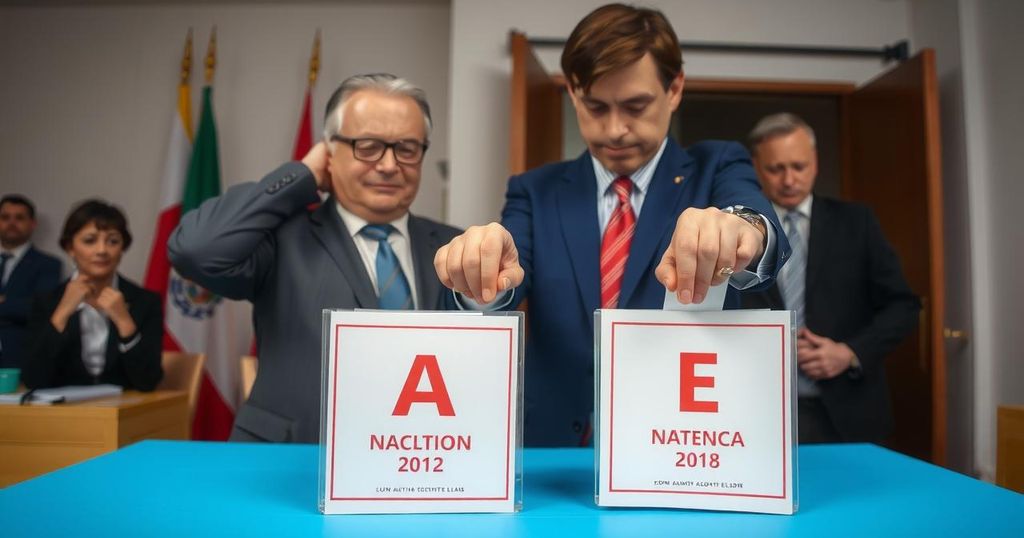Croatia’s Presidential Election: A Contest Between EU Alignment and Criticism of NATO

Croatia is holding a presidential election with incumbent President Zoran Milanović, a critic of NATO and EU support for Ukraine, facing Dragan Primorac from the ruling HDZ party. Pre-election polls suggest a potential runoff if no candidate secures a majority. The election reflects broader tensions over Croatia’s alignment in foreign policy and the impact of recent corruption scandals on public sentiment.
Croatia has commenced its presidential election, with incumbent President Zoran Milanović seeking reelection amidst significant political tension. Milanović, known for his contentious stance against Western involvement in the Ukraine conflict, is facing off against Dragan Primorac, the candidate from the ruling Croatian Democratic Union (HDZ), among seven other candidates. Pre-election polls indicate that due to the lack of a likely majority in the initial round, a second-round duel between Milanović and Primorac is anticipated on January 12, 2025.
Milanović, who previously served as prime minister and has risen as one of Croatia’s most prominent politicians, is often likened to former U.S. President Donald Trump for his fiery rhetoric. His government asserts a strong pro-EU and NATO approach, aiming to position Croatia favorably within Western alliances. Conversely, Primorac’s campaign emphasizes a commitment to a Western alignment, dismissing Milanović’s stance as increasingly pro-Russian. Despite the ceremonial nature of the presidency, the role holds considerable influence, especially in military command.
Milanović’s tenure has seen substantial criticism of NATO and EU positions regarding Ukraine, asserting that Croatia should refrain from international conflicts. He has publicly rejected participation in a NATO mission for Ukraine, asserting “no Croatian soldier will take part in somebody else’s war.” Primorac has made it clear that he views Croatia’s future as allied with the West, pushing back against accusations of Milanović leading the country eastward.
Notably, the election is occurring shortly after a parliamentary election in April and the European Parliament voting in June, marking 2024 as a significant year for Croatian electoral engagement. Trailing in polls behind the frontrunners is conservative independent candidate Marija Selak Raspudić, who has brought attention to issues such as economic distress, corruption, and the country’s declining population. As the election evolves, the outcome will not only determine the president but also the broader direction of Croatia’s foreign policy and political landscape.
The political landscape in Croatia is currently defined by significant divisions, particularly regarding the country’s alliances with NATO and the European Union. Analyzing the electoral dynamics, it is evident that President Zoran Milanović’s controversial communication style and criticism of Western military support for Ukraine have polarized public opinion. Dragan Primorac, backing a pro-West stance, seeks to capture the presidency amidst allegations of corruption that have affected the ruling party. The election’s implications may extend beyond the presidency itself, influencing Croatia’s international relationships and domestic policies in a pivotal year for governance.
In summary, Croatia’s presidential election presents a vital juncture in its political evolution, particularly reflective of the country’s foreign policy orientation. The potential showdown between Milanović and Primorac highlights a divergent vision for Croatia’s future, centered on Western alignment versus a more insular approach. As citizens cast their votes, the implications for domestic stability and international relations will be closely observed in the coming days.
Original Source: apnews.com








